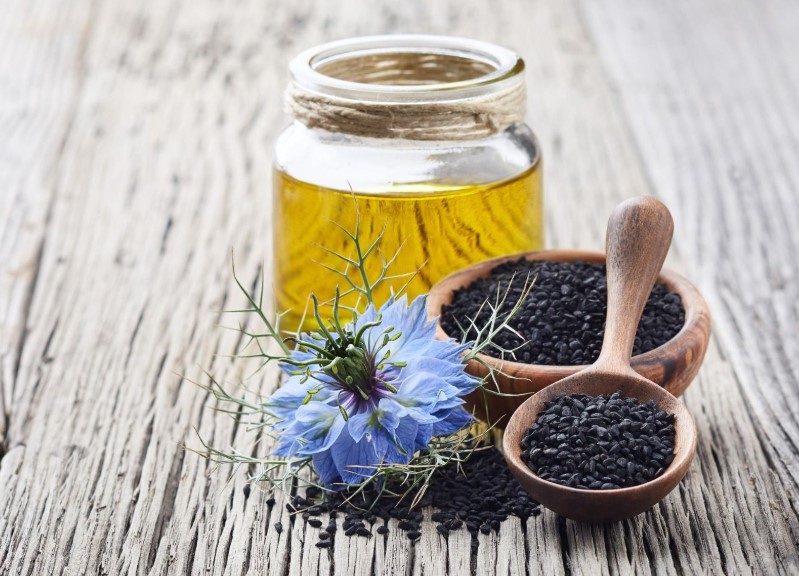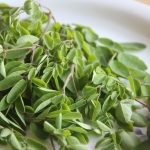The Role of Black Cumin Seed Oil in Boosting Immunity
Table of Contents
Black cumin oil, extracted from the seeds of Nigella sativa, has been revered for centuries in traditional medicine for its wide-ranging health benefits. Among its most notable properties is its potential to enhance immune function. Packed with bioactive compounds like thymoquinone, antioxidants, and essential fatty acids, this oil offers a natural approach to supporting the body’s defenses. This article explores how black cumin seed oil boosts immunity and how to incorporate it safely into your routine.
How Black Cumin Seed Oil Supports Immunity
The immune system relies on a complex network of cells, tissues, and organs to protect the body from infections and diseases. Black cumin seed oil contributes to this process through its unique composition:
- Thymoquinone: This potent compound has powerful antioxidant and anti-inflammatory properties. It helps neutralize free radicals, reducing oxidative stress that can weaken immune responses. Thymoquinone also modulates immune cell activity, enhancing the body’s ability to fight pathogens.
- Antimicrobial Properties: The oil exhibits antibacterial, antiviral, and antifungal effects, which help combat infections directly. Studies suggest it can inhibit the growth of pathogens like Staphylococcus aureus and Candida albicans, supporting the immune system by reducing the microbial load.
- Anti-Inflammatory Effects: Chronic inflammation can suppress immunity. Black cumin seed oil reduces inflammatory markers, creating a balanced immune environment that allows the body to respond effectively to threats.
- Nutrient Support: Rich in vitamins A, B, and C, as well as minerals like zinc and magnesium, the oil nourishes immune cells, promoting their optimal function.

Scientific Evidence
Research supports the immune-boosting potential of black cumin seed oil. A 2016 study published in Phytotherapy Research found that thymoquinone enhances the activity of T-cells and natural killer cells, key players in immune defense. Another study in Immunological Investigations (2010) showed that black cumin seed oil supplementation in animal models increased antibody production and improved resistance to infections. Its antiviral properties have also been explored, with preliminary studies indicating potential against certain viral strains, though more human trials are needed.
Practical Ways to Use Black Cumin Seed Oil for Immunity
1. Oral Consumption
Taking black cumin seed oil orally is a common way to support immunity. A typical dose is 1–2 teaspoons daily, either directly or mixed with honey, juice, or smoothies to mask its strong, peppery flavor. Start with a smaller dose (½ teaspoon) to assess tolerance, and always choose cold-pressed, organic oil for purity.
- Tip: Take it in the morning on an empty stomach for optimal absorption, or split the dose between morning and evening.
2. Incorporation into Meals
Add a teaspoon of the oil to salads, soups, or drizzled over roasted vegetables. Its nutty flavor complements savory dishes while delivering immune-supporting nutrients. Avoid heating the oil excessively, as high temperatures may degrade its bioactive compounds.
3. Topical Application
While primarily used internally for immunity, topical use can support localized immune responses, such as fighting skin infections. Mix 2–3 drops with a carrier oil (like coconut or jojoba) and apply to affected areas. This can be particularly helpful for minor cuts or fungal infections.
4. Inhalation
For respiratory support, add a few drops of black cumin seed oil to a diffuser or a bowl of hot water and inhale the steam. This can help clear nasal passages and support immunity in the respiratory tract, especially during cold and flu season.
Complementary Practices
To maximize the immune-boosting effects of black cumin seed oil, combine it with a healthy lifestyle:
- Diet: Eat a balanced diet rich in fruits, vegetables, and whole grains to provide essential nutrients for immunity.
- Exercise: Regular physical activity enhances immune function by improving circulation and reducing stress.
- Sleep: Aim for 7–9 hours of quality sleep nightly to allow immune cells to regenerate.
- Hydration: Drink plenty of water to support detoxification and overall health.
Precautions and Considerations
While black cumin seed oil is generally safe for most people, there are important precautions:
- Dosage: Stick to recommended doses (1–2 teaspoons daily for adults). Excessive consumption may cause digestive upset or lower blood pressure.
- Allergies: Perform a patch test for topical use and start with a small oral dose to rule out sensitivities.
- Medical Conditions: Consult a healthcare provider if you’re pregnant, breastfeeding, or have conditions like low blood pressure, diabetes, or bleeding disorders, as the oil may interact with medications or affect blood sugar and clotting.
- Quality: Choose high-quality, cold-pressed, organic oil from reputable sources to avoid contaminants.
Potential Side Effects
Mild side effects, such as nausea or stomach discomfort, may occur, especially with higher doses. Allergic reactions, though rare, can include rashes or itching. Discontinue use and seek medical advice if adverse effects arise.
Black cumin seed oil is a versatile natural remedy with significant potential to boost immunity. Its thymoquinone, antimicrobial properties, and nutrient profile make it a valuable ally in supporting the body’s defenses against infections and inflammation. By incorporating it into your daily routine through oral consumption, culinary use, or topical application, you can harness its benefits effectively. Pair it with a healthy lifestyle and consult a healthcare professional to ensure safe use, especially if you have underlying health conditions. With consistent and mindful use, black cumin seed oil can play a key role in maintaining robust immunity.










